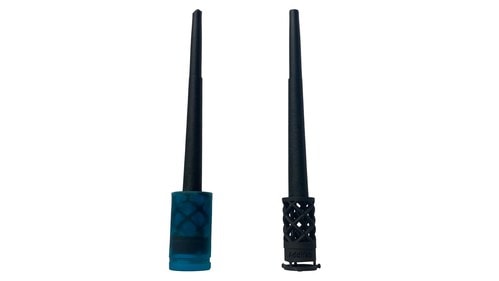Alpine Advanced Materials has introduced Rapid Prototype Moulding (RPM) using Addifab’s Freeform Injection Moulding technology and Nexa3D’s resin-based printers.
More from the News
The aim is to give clients a more rapid tool manufacturing solution that provides a functional and testable part at a fraction of the cost.
“The clients we work with whose parts must meet various certifications – UL, FAA, and MIL-spec, among others – need to have a ‘real’ part to test against their real-world challenges. RPM facilitates that by getting testable parts into the field quickly,” said David Brantner, Chief Executive Officer of Alpine Advanced Materials.
Brantner added: “Think of companies bidding for military or aerospace contracts, it’s powerful to have data that backs up whether your components actually work.”
The company says that 3D printed parts were able to get close in shape but were limited by mechanical performance. Injection moulded parts provide form and function but require investment in tooling. RPM delivers production-level components at a relatively low cost ideal for low volume testing.
RPM allows for product designers to fully prove a part before committing to a steel mould. It also allows for design iterations that make testing more dynamic.
“The design freedom Alpine can now offer their clients with Addifab Freeform Injection Moulding opens the way to faster, cheaper and greener product development,” said Carsten Jarfelt, Chief Commercial Officer of Addifab in the USA. “Our technology supports product development with economical prototype tooling, cutting an average of 85% off the price a first functional component, and can make it faster than ever before.”
Alpine clients can additively manufacture a tool cavity injection mould, a negative of the designed part, then create the prototype using the dramatically cheaper mould. After production, the mould is dissolved away, leaving a prototype with fibre alignment for strength and without the surface finish issues of 3D printing.
“One of the biggest barriers in transitioning to advanced materials is the weighty cost and time commitment required to test actual parts. Too often, the prospect of paying for a prototype that will cost tens of thousands of dollars stops innovation dead in its tracks,” said Branter.
Continuing, he said: “With RPM, we allows our clients across aerospace, defence, unmanned aerial vehicles, space and outdoor to more easily tap into the power of new material and design technology for dramatically less time and money.”
Subscribe to AM Chronicle Newsletter to stay connected: https://bit.ly/3fBZ1mP
Follow us on LinkedIn: https://bit.ly/3IjhrFq
Visit for more interesting content on additive manufacturing: https://amchronicle.com/


